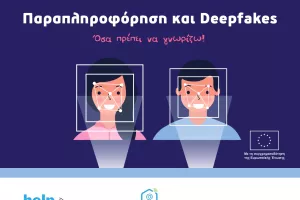Misinformation has always been and remains a common phenomenon on the internet, but the emergence and widespread acceptance of social networks have turned the spread of false information into a true 'epidemic.' False news spreads at lightning speed through social networks, giving it credibility and making it believable to a significant number of people.
It is, therefore, the responsibility of each of us to carefully verify the source of information, understand the purpose and mission of the medium we are reading, assess the credibility of the author, and compare different sources before drawing conclusions.
According to the Eurobarometer, it is striking that 71% of European citizens frequently encounter misinformation, while 86% agree that the rapid spread of misinformation poses a major problem for democracy. Equally interesting is the fact that many young people consider the size of an image in an article as a criterion for credibility rather than the citation of the source.
About this resource
Misinformation has always been and remains a common phenomenon on the internet, but the emergence and widespread acceptance of social networks have turned the spread of false information into a true 'epidemic.' False news spreads at lightning speed through social networks, giving it credibility and making it believable to a significant number of people.
It is, therefore, the responsibility of each of us to carefully verify the source of information, understand the purpose and mission of the medium we are reading, assess the credibility of the author, and compare different sources before drawing conclusions.
According to the Eurobarometer, it is striking that 71% of European citizens frequently encounter misinformation, while 86% agree that the rapid spread of misinformation poses a major problem for democracy. Equally interesting is the fact that many young people consider the size of an image in an article as a criterion for credibility rather than the citation of the source.
About this resource
- deepfake disinformation misinformation
Related content
- < Previous resource
- Next resource >
- < Previous
- Next >







